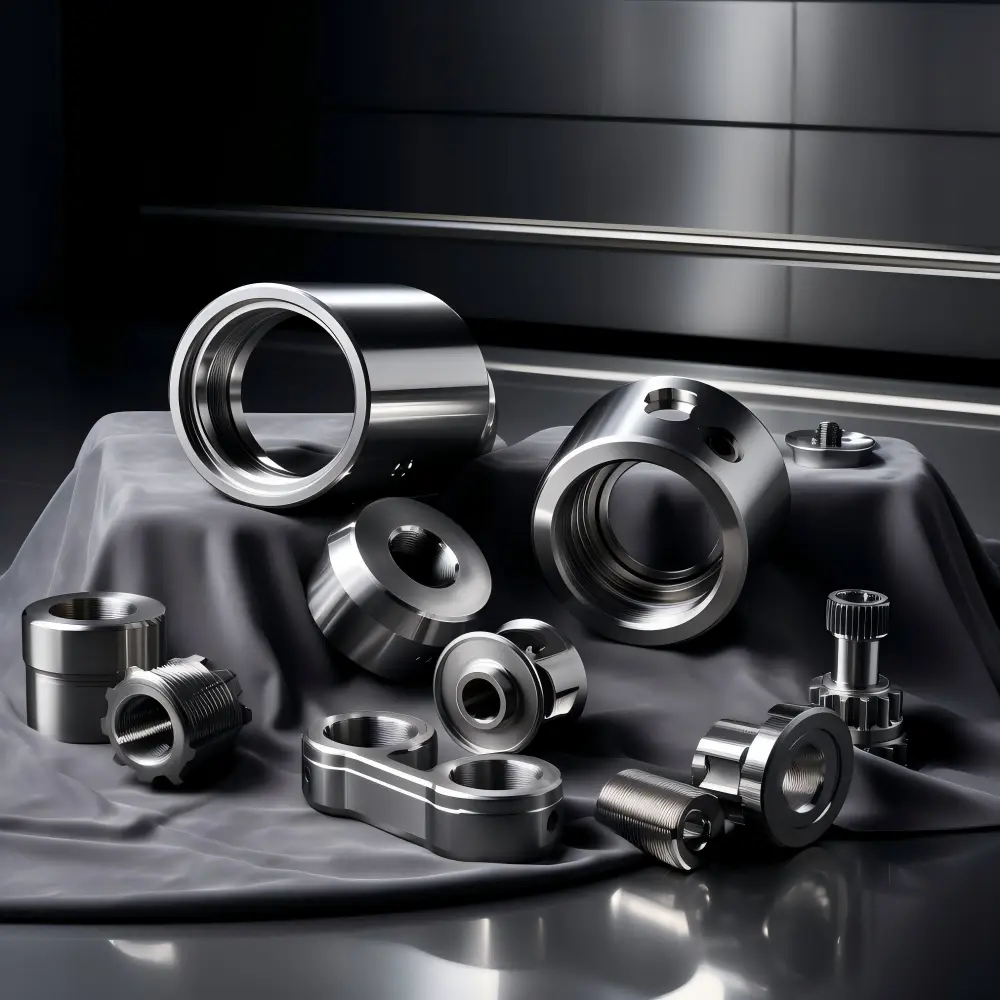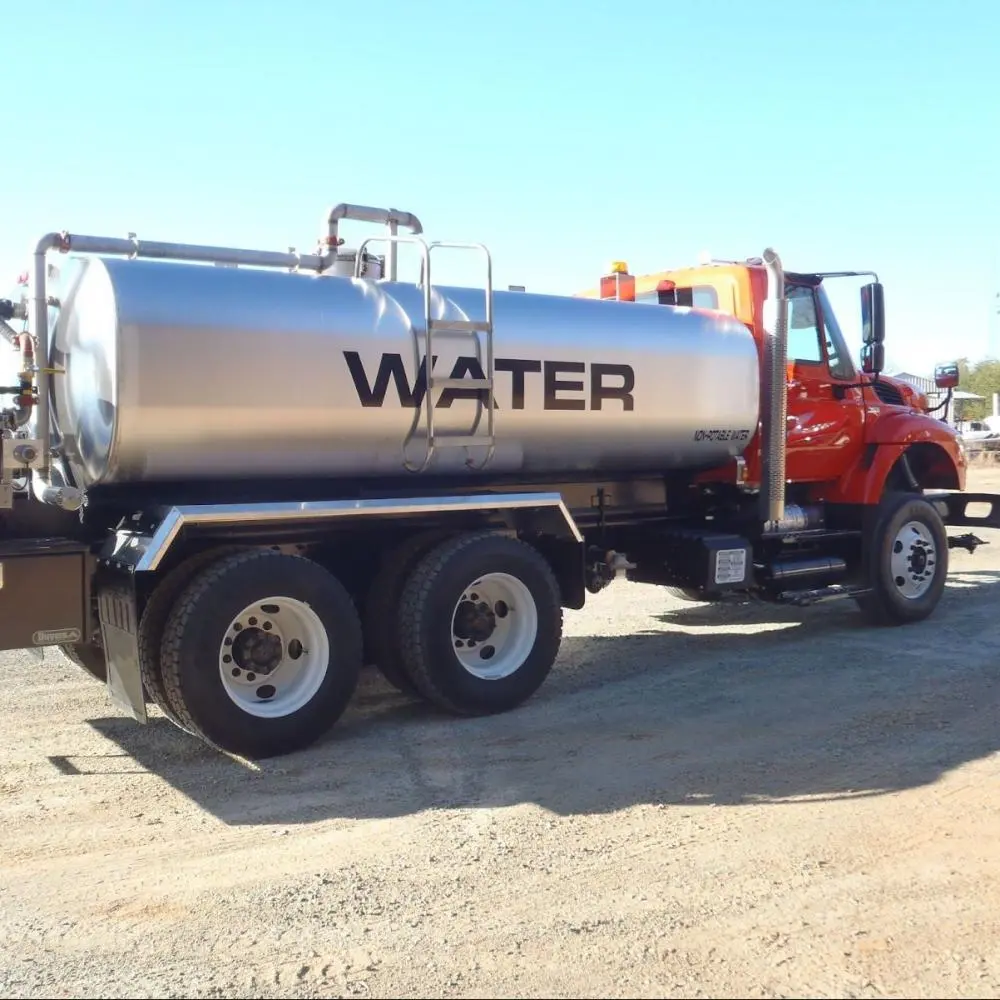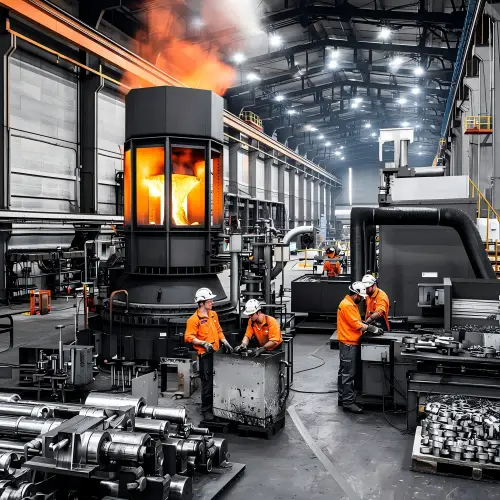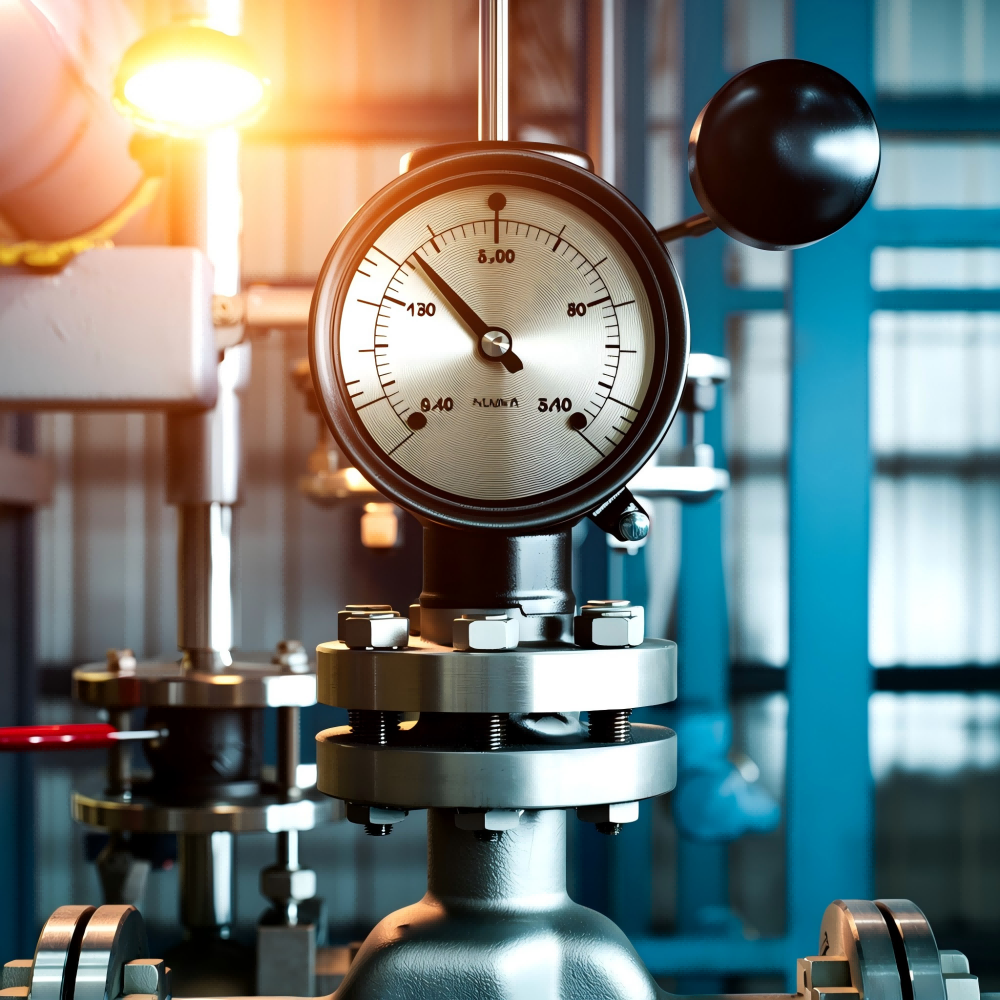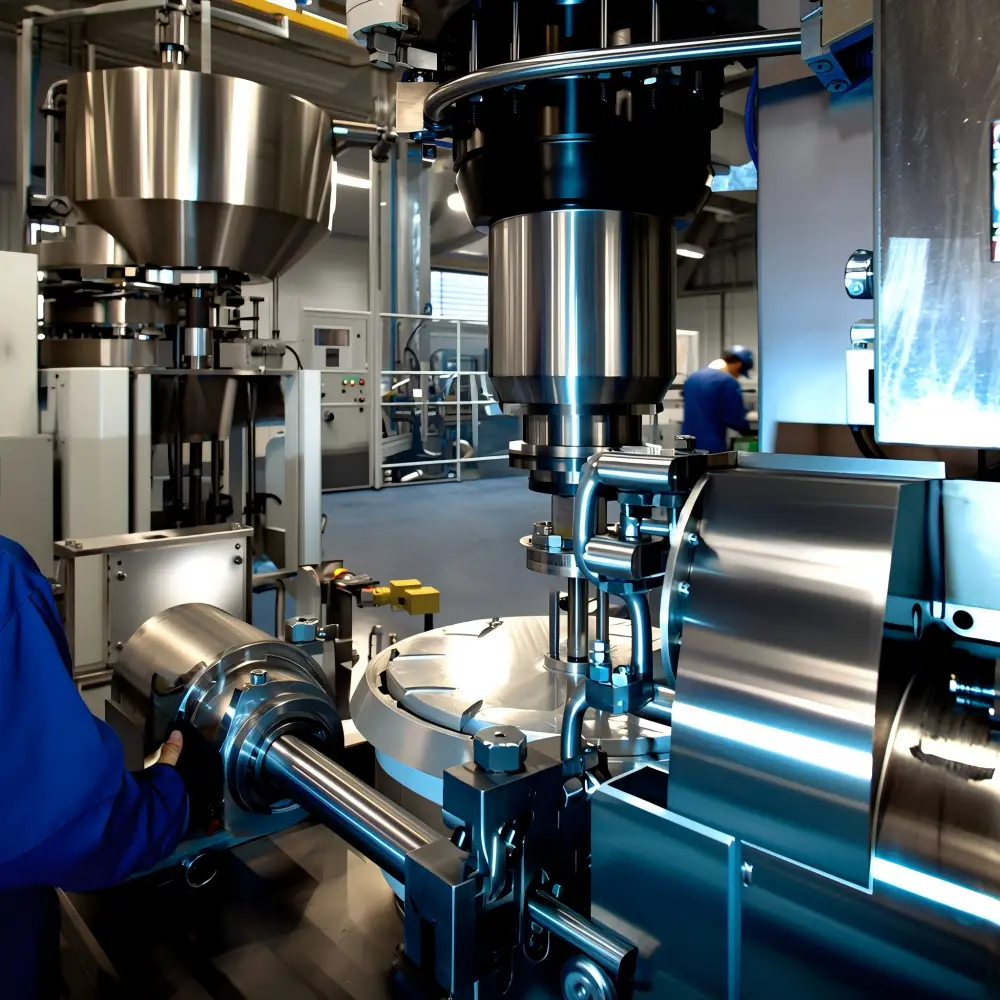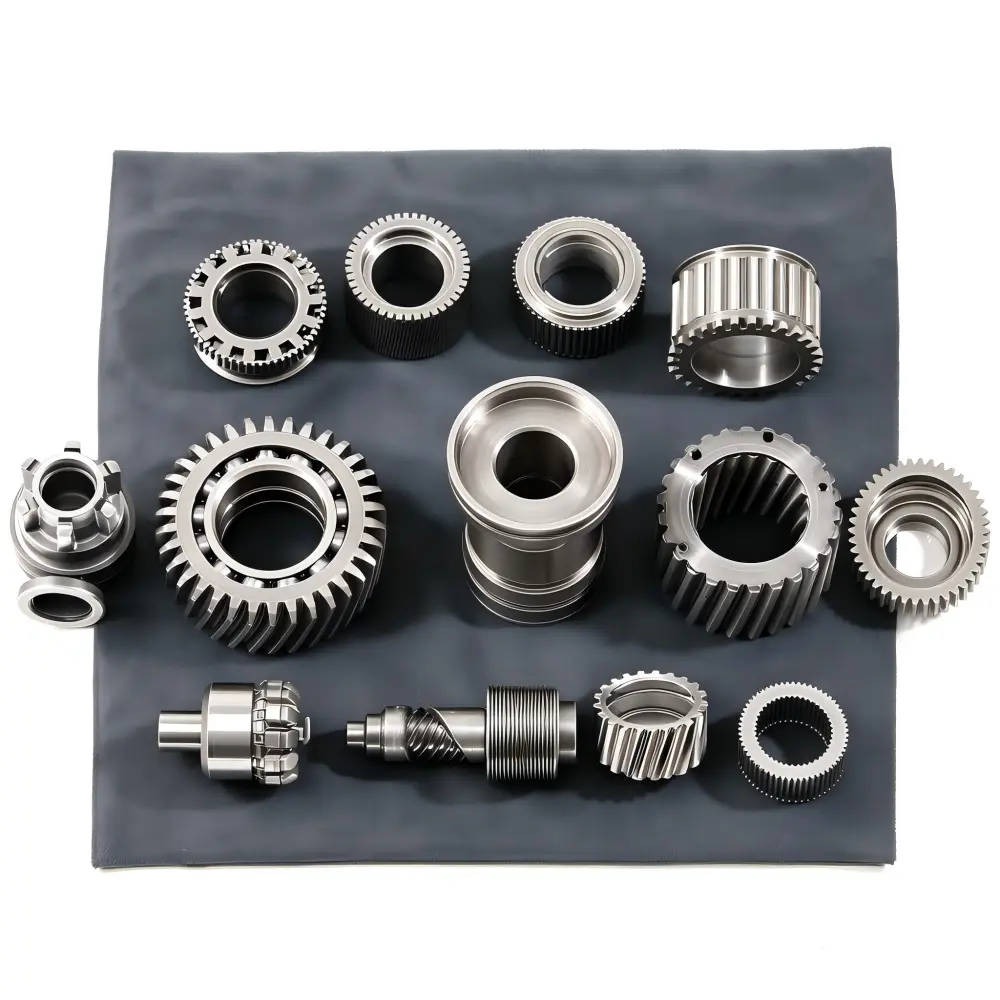How Silicon Bronze Precision Castings Boost Electrical Safety
Electrical systems demand materials that ensure safety and reliability. Silicon bronze precision castings excel in this role by combining corrosion resistance, high conductivity, and exceptional durability. These properties minimize risks such as overheating and material degradation. Their ability to withstand harsh environments and maintain performance over time makes them a preferred choice for critical electrical components. By reducing system failures and enhancing operational efficiency, these castings play a vital role in safeguarding electrical infrastructure.
Key Takeaways
- Silicon bronze Precision Castings provide exceptional corrosion resistance, making them ideal for electrical applications in harsh environments.
- The high electrical conductivity of silicon bronze ensures efficient energy transfer, reducing the risk of overheating and system failures.
- Durability and strength are key features of silicon bronze, allowing it to withstand mechanical stress and maintain performance over time.
- Using silicon bronze components minimizes maintenance needs and operational costs due to their long-lasting nature.
- Precision casting techniques enable the production of intricate designs, ensuring that silicon bronze components meet exact specifications for optimal functionality.
- Silicon bronze is a superior choice compared to aluminum and brass for critical electrical applications, offering enhanced safety and reliability.
- Industries such as power generation and telecommunications benefit significantly from the unique properties of silicon bronze precision castings.
What Are Silicon Bronze Precision Castings?
Definition and Composition
Silicon bronze precision castings refer to components manufactured using a specialized alloy primarily composed of copper, with silicon as the key alloying element. This alloy typically contains around 96% copper, which provides excellent strength and conductivity. The addition of silicon enhances the material's corrosion resistance and mechanical properties, making it suitable for demanding applications. Manufacturers use precision casting techniques to create intricate shapes and designs, ensuring that the final components meet exact specifications. This process allows for the production of high-quality parts that are both functional and durable.
The composition of silicon bronze makes it a versatile material for electrical applications. Its high copper content ensures superior electrical and thermal conductivity, while silicon contributes to its ability to resist wear and environmental degradation. These characteristics make silicon bronze precision castings an ideal choice for components that require both reliability and performance in challenging conditions.
Unique Characteristics of Silicon Bronze
Silicon bronze stands out due to its unique combination of properties. Its exceptional corrosion resistance protects it from damage caused by moisture, chemicals, and other environmental factors. This feature ensures long-term performance, even in harsh or corrosive environments. The material also exhibits high electrical conductivity, which is essential for efficient energy transfer in electrical systems. Its thermal conductivity further enhances its performance by allowing effective heat dissipation, reducing the risk of overheating.
Another notable characteristic of silicon bronze is its durability. The alloy's strength enables it to withstand mechanical stress and maintain structural integrity over time. Additionally, silicon bronze is non-sparking, which makes it a safe option for applications where electrical safety is critical. Precision casting techniques enhance these properties by enabling the creation of complex and precise components, ensuring optimal functionality in various electrical systems.
Silicon bronze precision castings combine these unique characteristics to deliver unmatched performance in electrical applications. Their ability to resist corrosion, conduct electricity efficiently, and endure mechanical stress makes them indispensable in ensuring electrical safety and reliability.
Why Electrical Safety Depends on Material Choice
Challenges in Electrical Safety
Electrical systems face numerous challenges that can compromise safety. Overheating remains a primary concern, as it can lead to fires or equipment failure. Poor material selection often exacerbates this issue by failing to dissipate heat effectively. Corrosion presents another significant risk, especially in environments exposed to moisture or chemicals. Corroded components lose their structural integrity and conductivity, increasing the likelihood of system malfunctions.
Mechanical stress also poses a threat to electrical safety. Components subjected to repeated stress may crack or deform, disrupting the flow of electricity. Inadequate durability in materials can result in frequent replacements, which increases maintenance costs and downtime. Furthermore, materials that spark under certain conditions create hazards in sensitive environments, such as industrial facilities or areas with flammable substances. Addressing these challenges requires careful consideration of the materials used in electrical systems.
Role of Materials in Enhancing Safety
The choice of materials plays a pivotal role in ensuring electrical safety. High-quality materials with excellent conductivity reduce energy loss and prevent overheating. Materials with superior thermal conductivity enhance heat dissipation, maintaining optimal operating temperatures. These properties contribute to the overall efficiency and reliability of electrical systems.
Corrosion-resistant materials extend the lifespan of components by protecting them from environmental damage. This resistance ensures consistent performance, even in harsh conditions. Durable materials withstand mechanical stress, preserving their structural integrity over time. Non-sparking materials further enhance safety by eliminating risks in hazardous environments.
Silicon bronze precision castings exemplify the importance of material selection. Their unique properties address multiple safety challenges, making them ideal for critical electrical applications. By combining corrosion resistance, high conductivity, and durability, these castings provide reliable solutions for modern electrical systems.
Key Benefits of Silicon Bronze Precision Castings in Electrical Applications
Corrosion Resistance
Silicon bronze precision castings offer exceptional corrosion resistance, making them ideal for electrical applications in harsh environments. The high copper content in the alloy, combined with silicon, creates a material that withstands exposure to moisture, chemicals, and other corrosive agents. This resistance ensures that components maintain their structural integrity and functionality over time, even in challenging conditions. Electrical systems benefit from this property as it reduces the likelihood of component failure caused by environmental degradation.
Corrosion-resistant materials like silicon bronze also minimize maintenance requirements. Components made from this alloy require fewer replacements, which lowers operational costs and enhances system reliability. This durability makes silicon bronze precision castings a preferred choice for industries that prioritize long-term performance and safety in their electrical infrastructure.
High Conductivity
Silicon bronze precision castings exhibit excellent electrical conductivity, a critical factor in ensuring efficient energy transfer within electrical systems. The high copper content in the alloy allows for minimal energy loss during operation. This efficiency reduces the risk of overheating, which is a common cause of electrical failures. By maintaining consistent conductivity, silicon bronze components contribute to the overall stability and performance of electrical systems.
In addition to electrical conductivity, the alloy's thermal conductivity plays a vital role in heat dissipation. Effective heat management prevents damage to sensitive components and extends their lifespan. This dual conductivity advantage makes silicon bronze an indispensable material for applications requiring both electrical and thermal efficiency.
Durability and Strength
The durability and strength of silicon bronze precision castings set them apart from other materials used in electrical applications. The alloy's mechanical properties enable it to withstand significant stress without deforming or cracking. This resilience ensures that components retain their shape and functionality, even under demanding conditions. Electrical systems benefit from this reliability, as it reduces the risk of unexpected failures.
Silicon bronze also resists wear and tear caused by repeated use, making it suitable for components subjected to frequent mechanical stress. Its non-sparking nature further enhances safety, particularly in environments where sparks could pose a hazard. These qualities make silicon bronze precision castings a robust and reliable solution for critical electrical applications.
The combination of corrosion resistance, high conductivity, and durability makes silicon bronze precision castings an essential material for modern electrical systems. Their unique properties address key challenges in electrical safety and performance, ensuring long-lasting and efficient operation.
Applications of Silicon Bronze Precision Castings in Electric Power Systems
Electrical Connectors and Terminals
Electrical connectors and terminals require materials that ensure consistent performance and safety. Silicon bronze precision castings provide the ideal solution for these components. Their high electrical conductivity allows efficient energy transfer, reducing power loss during operation. The corrosion resistance of silicon bronze ensures that connectors and terminals maintain their integrity, even in environments exposed to moisture or chemicals. This durability minimizes the risk of system failures caused by degraded connections.
The strength of silicon bronze also plays a critical role in these applications. Connectors and terminals often experience mechanical stress during installation and operation. Silicon bronze withstands this stress without deforming, ensuring reliable connections over time. Manufacturers use precision casting techniques to create intricate designs for connectors and terminals, enabling compatibility with various electrical systems. These properties make silicon bronze an essential material for producing high-performance electrical connectors and terminals.
Switches and Circuit Breakers
Switches and circuit breakers serve as vital components in electrical systems, controlling the flow of electricity and protecting against overloads. Silicon bronze precision castings enhance the performance of these devices by offering superior conductivity and durability. The high copper content in silicon bronze ensures minimal energy loss, allowing switches and circuit breakers to operate efficiently. This conductivity also reduces the risk of overheating, which can compromise the safety of electrical systems.
The corrosion resistance of silicon bronze proves invaluable in maintaining the reliability of switches and circuit breakers. These components often function in environments where exposure to moisture or corrosive substances is unavoidable. Silicon bronze resists such damage, ensuring long-term performance. Additionally, the material's strength enables it to endure repeated mechanical stress, such as the frequent opening and closing of switches. Precision casting techniques allow manufacturers to produce complex and precise components, ensuring optimal functionality in these critical devices.
Grounding Systems
Grounding systems play a crucial role in electrical safety by directing excess electrical energy into the ground, preventing damage to equipment and reducing the risk of electrical shock. Silicon bronze precision castings provide an excellent material choice for grounding components due to their unique properties. The high conductivity of silicon bronze ensures effective energy transfer, enabling grounding systems to perform their protective function reliably.
Corrosion resistance further enhances the suitability of silicon bronze for grounding systems. These components often remain exposed to harsh environmental conditions, including moisture and soil chemicals. Silicon bronze resists corrosion, maintaining its structural integrity and conductivity over time. The material's durability ensures that grounding components withstand mechanical stress and environmental wear, reducing the need for frequent replacements. Precision casting techniques allow for the creation of grounding components with intricate designs, ensuring compatibility with various electrical systems.
The use of silicon bronze precision castings in grounding systems, switches, and connectors highlights their versatility and effectiveness in enhancing electrical safety. Their unique combination of conductivity, corrosion resistance, and durability makes them indispensable in modern electric power systems.
Comparison with Other Materials
Silicon Bronze vs. Aluminum
Silicon bronze and aluminum serve distinct purposes in electrical applications, but their properties differ significantly. Silicon bronze offers superior corrosion resistance compared to aluminum. This resistance makes it ideal for environments exposed to moisture, chemicals, or other corrosive agents. Aluminum, while lightweight, tends to corrode more quickly, especially in harsh conditions, which can compromise its performance over time.
Aluminum provides good electrical conductivity but falls short of the efficiency offered by silicon bronze. The high copper content in silicon bronze ensures minimal energy loss, making it a better choice for different materials.
Durability also sets silicon bronze apart. The strength of silicon bronze allows it to withstand mechanical stress and wear, ensuring long-term reliability. Aluminum, though lightweight and easy to work with, lacks the same level of durability. It is more prone to deformation under stress, which can lead to frequent replacements in demanding applications.
While aluminum may appeal due to its cost-effectiveness and lightweight nature, silicon bronze excels in safety-critical applications where corrosion resistance, conductivity, and durability are paramount.
Silicon Bronze vs. Brass
Silicon bronze and brass share similarities as copper-based alloys, but their performance in electrical applications varies. Silicon bronze demonstrates higher corrosion resistance than brass. The addition of silicon enhances its ability to withstand environmental factors, making it suitable for long-term use in challenging conditions. Brass, on the other hand, is more susceptible to corrosion, particularly in environments with high humidity or chemical exposure.
Electrical conductivity also differentiates these materials. Silicon bronze provides excellent conductivity, ensuring efficient energy transfer and reducing the risk of overheating. Brass, while conductive, does not match the efficiency of silicon bronze, which can impact the overall performance of electrical systems.
In terms of strength, silicon bronze outperforms brass. Its mechanical properties allow it to endure significant stress without deforming or cracking. Brass, though durable, is less robust under mechanical strain, which may limit its use in applications requiring high strength and reliability.
Brass may offer advantages in terms of cost and machinability, but silicon bronze remains the superior choice for electrical applications that demand exceptional corrosion resistance, conductivity, and durability.
Silicon bronze precision castings play a vital role in improving electrical safety. Their unmatched corrosion resistance, high conductivity, and exceptional durability ensure reliable performance in critical components like connectors, switches, and grounding systems. These properties reduce risks such as overheating and material degradation, making them indispensable for modern electrical infrastructure. Compared to other materials, silicon bronze offers superior efficiency and safety, solidifying its position as the ideal choice for electric power systems. Its ability to meet demanding requirements highlights its importance in advancing electrical reliability and safety.
FAQ
What is silicon bronze, and why is it used in electrical applications?
Silicon bronze is a copper-based alloy with silicon as the primary alloying element.
How does silicon bronze improve electrical safety?
Silicon bronze enhances electrical safety by reducing risks such as overheating, corrosion, and mechanical failure. Its high conductivity ensures efficient energy transfer, while its corrosion resistance prevents material degradation. The alloy's durability allows it to withstand mechanical stress, ensuring long-term reliability in critical applications.
What are the key benefits of using silicon bronze precision castings?
Silicon bronze precision castings provide several advantages, including exceptional corrosion resistance, high electrical and thermal conductivity, and outstanding durability.
Are silicon bronze precision castings suitable for outdoor electrical systems?
Yes, silicon bronze precision castings perform exceptionally well in outdoor environments. Their corrosion resistance protects them from moisture, chemicals, and other environmental factors. This ensures consistent performance and longevity, even in challenging conditions.
How do silicon bronze precision castings compare to aluminum in electrical applications?
Silicon bronze outperforms aluminum in terms of corrosion resistance, conductivity, and durability. While aluminum is lightweight and cost-effective, it corrodes more easily and lacks the strength and reliability of silicon bronze. For safety-critical applications, silicon bronze remains the superior choice.
Can silicon bronze components handle high electrical loads?
Yes, silicon bronze components can handle high electrical loads effectively. Their high copper content ensures excellent electrical conductivity, minimizing energy loss and reducing the risk of overheating. This makes them suitable for applications requiring efficient energy transfer.
What industries benefit most from silicon bronze precision castings?
Industries such as power generation, telecommunications, and industrial manufacturing benefit significantly from silicon bronze precision castings. These industries rely on the alloy's unique properties to ensure the safety and reliability of their electrical systems.
Are silicon bronze precision castings cost-effective in the long term?
Yes, silicon bronze precision castings offer long-term cost-effectiveness. Their durability and corrosion resistance reduce the need for frequent replacements and maintenance. This lowers operational costs and enhances the overall efficiency of electrical systems.
What role does precision casting play in the performance of silicon bronze components?
Precision casting allows manufacturers to create complex and intricate designs with high accuracy. This ensures that silicon bronze components meet exact specifications, enhancing their functionality and performance in electrical systems.
How do silicon bronze precision castings contribute to sustainable practices?
Silicon bronze precision castings contribute to sustainability by offering long-lasting performance and reducing material waste. Their durability minimizes the need for replacements, while their recyclability supports environmentally friendly practices in manufacturing and end-of-life disposal.






